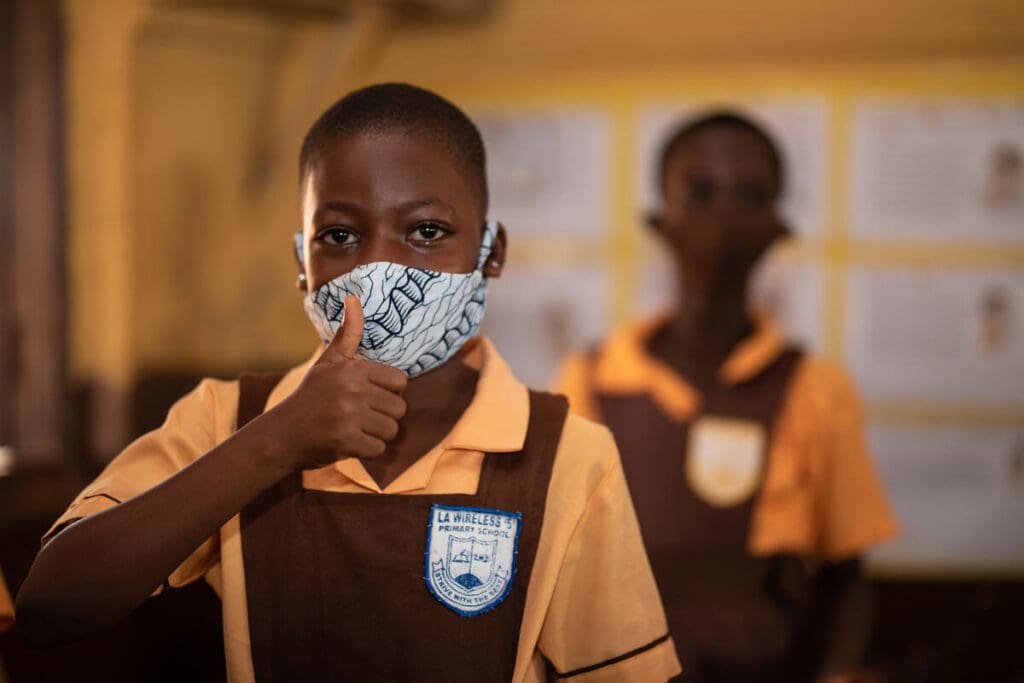WFP Supports the Ghana School Feeding Program to Digitize Its Monitoring System

Accra – The United Nations World Food Programme (WFP) has provided the Ghana School Feeding Programme (GSFP) with tablets to digitize the monitoring of the school feeding program. The initiative aims to reinforce program efficiency and implementation by enabling real-time tracking of daily attendance and feeding in 260 pilot schools in all 16 regions of the country.
“Real-time data on school attendance and feeding is key to enabling efficient management of the program and its expansion to reach more school children in the country,” said Anna Mukiibi-Bunnya, U.N. World Food Programme Representative ad interim and Officer-in-Charge. “These tablets will enhance the monitoring and reporting capacity of the Ghana School Feeding Programme for better results” she added.
Overall, 300 tablets loaded with Tableau and ONA softwares will provide users with visuals to help them see and understand the data, transforming the way they use it to solve problems and providing real -time information for prompt decision-making. In addition to providing the tablets and purchasing the software and server, the U.N. World Food Programme will train 300 people including Headteachers, Circuit Supervisors, caterers and decision-makers at the Ghana School Feeding Programme and the Ministry of Gender, Children and Social Protection, to use the tablets for data collection and reporting.
Since the U.N. World Food Programme stopped direct provision of school meals in 2016, it has been providing technical support and helping to improve the overall implementation of the school feeding program which currently reaches over 3.4 million school children in Ghana. The U.N. World Food Programme supports GSFP to train caterers and cooks to be innovative in providing nutritious meals. The food assistance agency is supporting the development of the school feeding bill and the Home-Grown School Feeding Programme Regional Guidelines, in collaboration with NEPAD-African Union Development Agency. Other areas of support are joint-monitoring of the school feeding program and the development of the Cost-Benefit Analysis of School Feeding in Ghana.
Globally, the U.N. World Food Programme has six decades of experience supporting school feeding and health initiatives and working with more than 100 countries to set up sustainable national school feeding programs. Its mission is to ensure that all school aged children have access to school meals and are healthy and ready to learn.
In 2020, the U.N. World Food Programme worked with governments to build capacity, helping to bolster national school feeding programs of 65 countries, benefitting 39 million children. Some 15 million schoolchildren also received nutritious meals and snacks from the U.N. World Food Programme.
# # #
The United Nations World Food Programme is the 2020 Nobel Peace Prize Laureate. We are the world’s largest humanitarian organization, saving lives in emergencies and using food assistance to build a pathway to peace, stability and prosperity for people recovering from conflict, disasters and the impact of climate change.
Follow us on Twitter @WFPUSA and @WFP_Ghana




